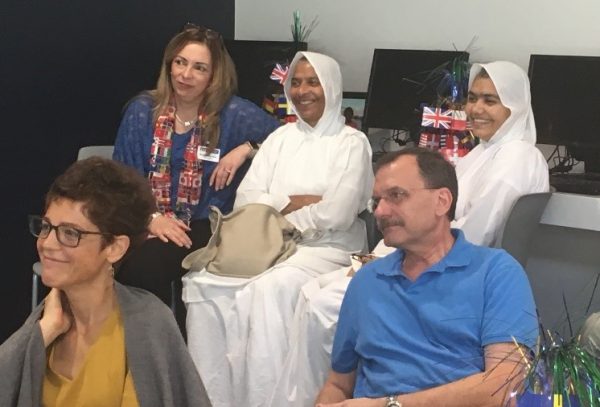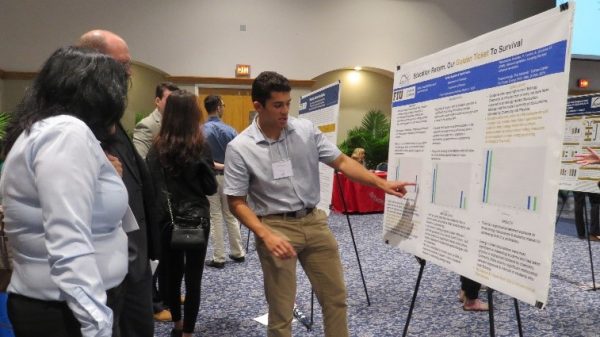J-1 Exchange Visitors
Florida International University hosts over 200 visiting scholars annually in the J-1 category. J-1 Exchange Visitors visit the university for as little as three weeks to a maximum of 5 years in paid or unpaid appointments.
Participants use the Form DS-2019 (formerly IAP-66) to apply at the American embassy or consulate for the J-1 visa to enter the United States. Exchange Scholars are classified into different categories as stated by the Department of State J-1 Visa Section of their website.
The categories sponsored by FIU are:
Research Scholar
Research scholars conduct researchabout a specific project. Research scholars must have at least a Bachelor’s degree upon hire. They may also teach or lecture if allowed by their sponsoring department and may remain in the United States for a maximum of 5 years.
Professor
Professors teach, lecture, observe, or consult at a postsecondary educational institution while in the United States. Professors must have at least a Bachelor's Degree, can remain in the United States a maximum of 5 years and may conduct research if approved by their sponsoring department.
Paid employment for J-1 research scholars or professors is allowed only if it is indicated in the DS-2019. It is not possible for a J-1 visa holder to accept paid employment outside of FIU without proper authorization. There is, however, a provision which allows for occasional lectures, if the permission is requested and granted by ISSS (contact our offce for instructions).
Short Term Scholar
Short-term scholars are professors or researchers in their country who come to the United States for a short-term visit. Their purpose is to lecture, observe, consult, or participate in seminars, workshops, conferences, tours, professional meetings, or other educational and professional activities. Short-term scholars must have at least a Bachelor’s degree and may remain in the United States for a maximum of 6 months. Upon the end of his/her visit, the J-1 Short-Term Scholar may return to the U.S. again for a new Short-Term Scholar stay providing there is a substantial break in between and each visit constitutes a new objective. Another advantage of using the Short-Term Scholar J-1 category is that the visitor may also return to the U.S. for a longer term stay using the J-1 Research Scholar/Professor category without being subject to the 12 and 24 month bars.
Specialist
Specialists are experts in a field. They visit the United States to share their special skill or knowledge. The specialist designation is not used to fill a permanent or long-term position. Specialists are allowed in the United States for a maximum of 1 year.
College and University Students
Students study at a U.S. degree-granting post-secondary accredited academic institution, participating in a degree, or non- degree program.

